NAM: Lower Costs Through PBM Reform, Not Price Controls

To lower drug prices, Congress should undertake comprehensive reform of pharmacy benefit managers, not embrace price controls, the NAM told the Senate Tuesday.
What’s going on: “Biopharmaceutical manufacturers are a critical part of the manufacturing economy,” NAM Vice President of Domestic Policy Charles Crain said ahead of a Senate Finance Committee hearing on health care costs.
- In 2021, biopharmaceutical firms “accounted for $355 billion in value-added output to the U.S. economy … and directly employed 291,000 workers in the United States, with each of these jobs supporting an additional 4.1 jobs.”
- Crucially, biopharma companies are also responsible for the dozens of groundbreaking, lifesaving medications brought to patients annually.
- But their continued innovation and economic impact are under attack by both Inflation Reduction Act–mandated drug price controls and the largely unchecked actions of PBMs, Crain continued.
Threats to innovation: Instead of benefiting patients, “the IRA pricing mandates announced last month by the Department of Health and Human Services will … limit the capital manufacturers have available to put toward the astronomically high costs of developing a new medicine,” Crain told the committee, adding that the uncertainty introduced by price controls is also likely to dissuade early-stage investment in new treatments.
- Rather than impose further price controls, Congress should address the influence of PBMs, largely unregulated middlemen that “contribute to the skyrocketing cost of health care by applying upward pressure to list prices that dictate what patients pay for medicines at the pharmacy counter, pocketing manufacturer rebates and failing to provide an appropriate level of transparency about their business models.”
PBM reform: To truly lower health care costs, Congress must rein in PBMs, Crain said. The NAM has called on Congress to adopt specific PBM reforms, including:
- Increased transparency into PBMs’ business models;
- Rebate passthrough to ensure that 100% of negotiated savings get passed on to health plan sponsors and employees; and
- Delinking of PBM compensation from medication list prices.
The last word: “Instead of further embracing price controls, it is imperative that Congress act to lower drug prices by reining in PBMs’ problematic business practices and minimizing their ability to further damage the U.S. health care system,” Crain said.
- “All Americans deserve access to high-quality, affordable health care, and PBM reform is an impactful step toward this goal.”
Drug Makers Invest in Radiopharmaceuticals

Pharmaceuticals manufacturers are increasingly turning to radioactive drugs in their battle against cancers (CNBC).
What’s going on: Eli Lily, Bristol Myers Squibb and others “have spent some $10 billion on deals to acquire or work with radiopharmaceuticals makers,” which produce drugs containing radioactive isotopes, predicting that the technology will be effective in treating multiple cancer types.
- Meanwhile, Novartis already has two radiopharmaceuticals, Pluvicto and Lutathera, available for cancer treatment, and several dozen more in development.
How it works: Radiopharmaceutical “drugs work by attaching radioactive material to a targeting molecule that searches for and attaches to a specific marker on cancer cells. The trick is finding markers that exist on cancer cells but not healthy cells. That can allow the treatment to deliver radiation to cancer cells and spare the rest of the body from the level of damage that comes with many cancer drugs.”
- Bristol Myers Squibb sees “opportunity [in] … combining radiopharmaceuticals with existing cancer drugs like immunotherapy, said Robert Plenge, Bristol’s chief research officer.”
More interest: Though radiopharmaceuticals have been around since the 1940s, they’ve only begun drawing big interest in recent years.
- Early this year, Bristol Myers Squibb completed a $4.1 billion acquisition of radiopharmaceutical startup RayzeBio.
- In 2023, Eli Lilly acquired radiopharmaceutical company Point Biopharma and signed partnerships with businesses that are developing treatments.
In-house production: Among the key criteria in Lilly’s search for a firm to acquire: “whether companies were prepared to manufacture the drugs,” according to Eli Lilly Executive Vice President and President of Lilly Oncology Jacob Van Naarden.
- “Radiopharmaceuticals aren’t easy to make, and Lilly wanted to make sure any initial acquisition could produce the drugs themselves instead of outsourcing the work.”
Safety and speed are everything: Each dose of Novartis’ Pluvicto has a GPS tracker to make sure it goes to the correct patient at the correct time, said Victor Bulto, president of the U.S. unit for Novartis. That’s because the therapies are only good for a few days once made.
- Novartis is “investing more than $300 million to open and expand radiopharmaceutical manufacturing sites in the U.S. so it can produce the drug and get it to patients quickly.”
- The pharmaceutical company “drives doses to destinations that are within nine hours from the factory to minimize the risk of disruptions from storms, Bulto said.”
Special considerations: Radiopharmaceuticals come with unique challenges.
- One health care network had to upgrade its medical license before it could be allowed to handle radioactive materials, and “[a] certified specialist needs to administer the drugs, which are given intravenously.”
- To avoid exposing people to radiation, patients taking the treatments must remain at a distance from others for a week or more following the injections, which they get every six weeks.
Big opportunity: Though full understanding of radiopharmaceuticals’ potential may be years away, “[i]f we can be successful in expanding the target and tumor type repertoire, this could be a very big class of medicines,” Van Naarden said.
Techmer PM Offers Safe Alternatives to PFAS for Manufacturers
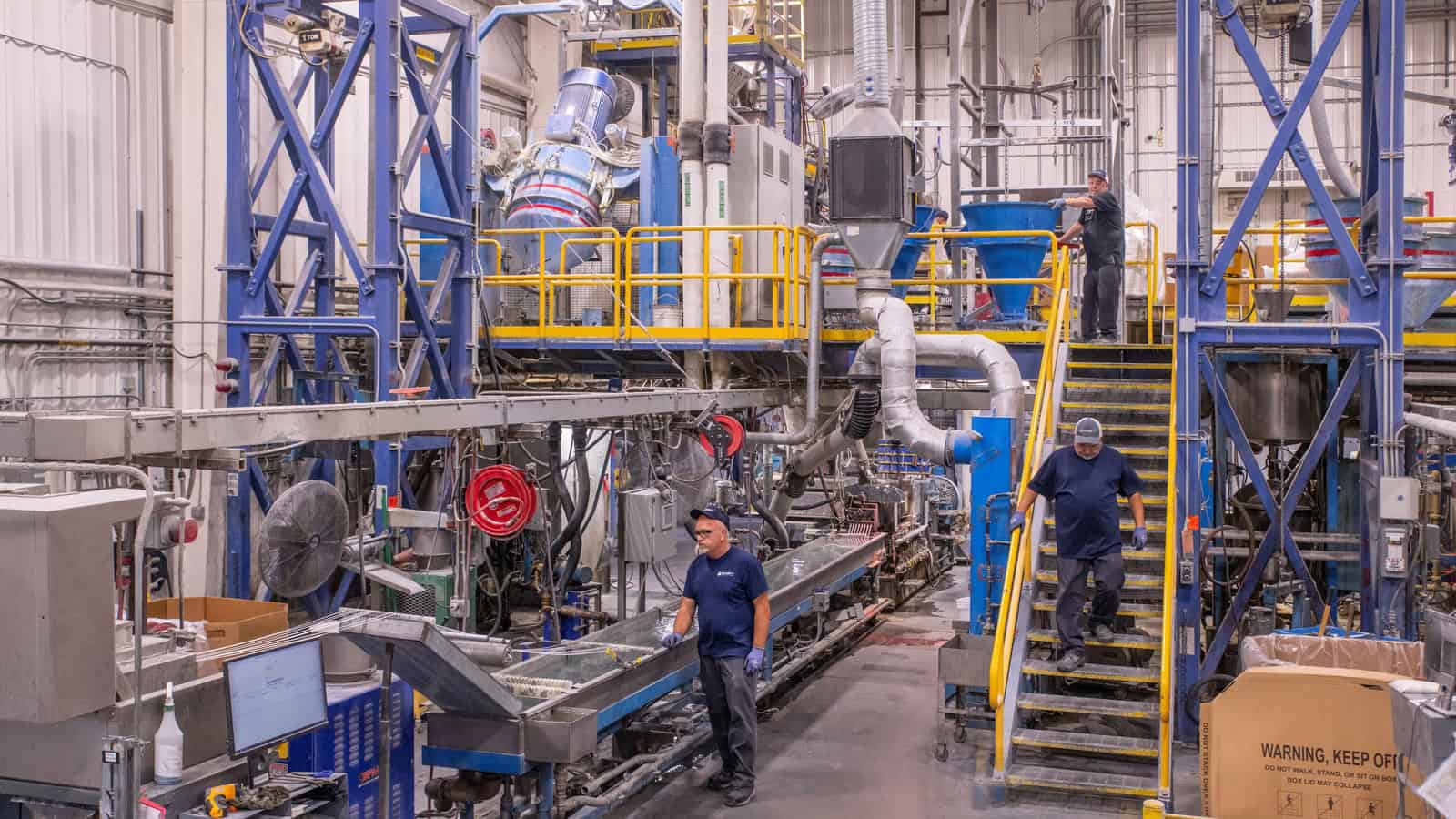
The search for alternatives to chemicals called PFAS has been going on for years. Recently, materials design company Techmer PM created one—a new chemical for use in polymer processing.
The new solution: Last year, the Clinton, Tennessee–based manufacturer introduced the HiTerra T5—a polymer processing aid that helps maintain film surface smoothness and die-lip buildup—which replaces traditional chemistry based on per- and polyfluoroalkyl substances.
- The HiTerra T5, which meets Environmental Protection Agency guidelines and does not interfere with other additives, is being used in large-scale commercial undertakings by Techmer PM customers.
Why it’s critical: In March, the EPA issued the first federal reporting limits and guidelines for tracking the use of PFAS in manufacturing, along with other PFAS-related regulations. Individual states are also imposing their own restrictions on PFAS chemicals.
- The current regulatory environment is motivating plastics processors and raw materials suppliers to seek new alternatives to this chemistry.
- “The biggest challenge is that fluorinated chemistry is excellent at reducing friction, reducing melt fracture, improving hydrophobicity, stain resistance and helping the processing that manufacturers use, for example, to make film,” Techmer PM CEO Mike McHenry told the NAM in a recent interview. “It also helps with wear on small gears. It’s very effective, and it has unique properties that customers are accustomed to.”
More replacement efforts: Techmer PM is working closely with its customers to come up with additional PFAS alternatives, McHenry said.
- Because one of PFAS’ most useful characteristics is its ability to resist fire, “we’re looking at ways to remove halogen flame retardants, including fluorinated compounds” and find a comparable alternative for customers, McHenry said.
Unrealistic timelines: While the firm is hard at work developing potential replacements, the stringent deadlines that the EPA has set for the reporting and potential elimination is damaging, McHenry told us.
- “It can take years to get use approval [for alternatives], and finding them is a huge challenge in itself,” he went on. “We see the timelines being put forth as something that needs to be looked at, and [manufacturers] need support.”
- “For some uses—tubing, for example–it’s going to be very difficult to find something that will work the way fluorinated chemistries do. As much as we all want to move away from [PFAS], there are some instances in which it will be worse” to rush the search than continue using PFAS, he added.
- One of these areas is medical devices, McHenry said. The gowns used to protect surgeons and nurses, for example, are coated in PFAS-containing substances, which “will be very difficult to replace.”
The long view: For many applications, dependable alternatives will likely be found at some point, McHenry concluded.
- “I think we’ll find alternatives, but it’s not one-size-fits-all, and it will take time,” he said. “The versatility of fluorinated compounds is unique.”
NAM Shop Talk Series: Meet Rep. Rudy Yakym

Rep. Yakym (at right) visits the shop floor of Kountry Wood Products in Nappanee, Indiana.
For Rep. Rudy Yakym (R-IN), Indiana’s 2nd Congressional District isn’t just a place on the map—it’s the beating heart of America’s manufacturing sector. It’s a district he proudly refers to as the “manufacturing capital of America.”
- “From the foundries to factory floors, Indiana’s 2nd District is where ‘Made in the USA’ happens,” said Rep. Yakym. “This district is home to some of the most decent and hardworking men and women anywhere in America. They contribute so much to our nation’s industrial base, and I take the responsibility of representing them very seriously.”
Personal connection: Representing this district in the House of Representatives, the fourth-generation Hoosier who was born and raised in South Bend brings a personal connection to manufacturing that shapes his vision for the future of the industry and fiscal responsibility in the United States.
- Before his political career, Rep. Yakym worked for supply chain management firm Kem Krest. His firsthand experience in the industry gave him a unique perspective on the challenges and opportunities within manufacturing.
- His brother Joel works in manufacturing, operating a large machine for Welch Packaging in Elkhart. “In his line of work, he has been able to provide a great living for his family, and I want more people to have those opportunities for rewarding, well-paying jobs,” said Rep. Yakym.
This deep-rooted connection to manufacturing is more than just a talking point for Rep. Yakym—it’s a cornerstone of his identity and legislative agenda.
Zoom out: Rep. Yakym’s commitment to manufacturing isn’t just lip service. He led a significant effort in the House of Representatives, rallying more than 140 Republican colleagues to support a tax package that would restore full R&D expensing, bonus depreciation and interest deductibility—key provisions of the NAM’s “Manufacturing Wins” campaign to preserve tax reform in its entirety.
- Although the package faced hurdles in the Senate, Rep. Yakym’s work laid the groundwork for future bipartisan efforts.
A collaborative spirit: Rep. Yakym’s dedication to bipartisanship is clear. He noted that if he had to choose a member of Congress of the opposing party he’d start a manufacturing company with, he didn’t hesitate to name Rep. Jimmy Panetta (D-CA). Rep. Yakym said they would produce RV components, an industry he knows well from his district, which includes Elkhart, the “RV Capital of the World.”
- “Jimmy and I serve on the House Budget Committee together, and he is always willing to build consensus and work across the aisle to find commonsense solutions,” said Rep. Yakym.
The vision: Looking ahead, Rep. Yakym envisions a future where manufacturing continues to be a pillar of the American economy, especially in his district. He wants the next generation to understand that viable, rewarding career paths in manufacturing are right in their backyard.
- “There is massive demand at the manufacturers in my district for welders, forklift drivers and other jobs that may otherwise be overlooked by students,” Rep. Yakym points out.
- “You can get a well-paying job straight out of high school that will offer on-the-job training. There is also a wealth of advanced manufacturing jobs available at medical device companies, as well as a number of battery manufacturers being brought online in the coming years.”
What’s next: As a congressman, Rep. Yakym’s primary goal is to restore fiscal responsibility in Washington. He sees this as essential not just for the country’s economic health, but also for national security.
- “The main reason I ran for office and my top priority in Congress is restoring fiscal responsibility so that future generations can inherit a nation every bit as prosperous and full of opportunity as the one we did,” said Rep. Yakym. “Getting our fiscal house in order is the most important long-term challenge we face as a nation.”
Only at the NAM: Shop Talk is a new series that aims to help you get to know the personal connections, insights and priorities of policymakers who impact our industry.
Rep. Feenstra Works to Repeal Estate Tax
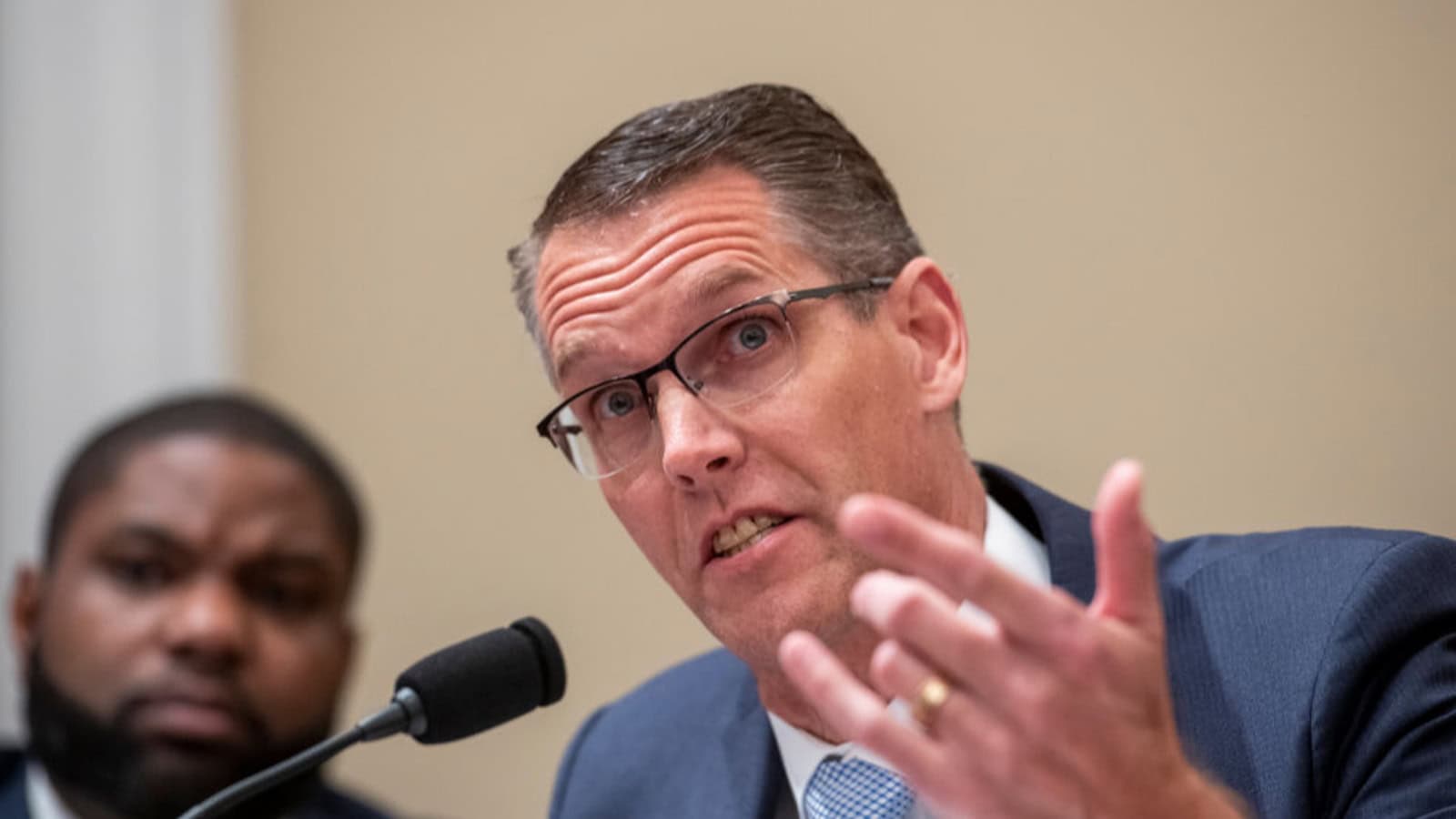
Rep. Randy Feenstra (R-IA), the vice chair of the House Ways and Means Committee’s Rural America Tax Team, is working to shield family businesses across America from damaging tax burdens by targeting the estate tax for repeal.
As part of the NAM’s “Manufacturing Wins” campaign, which aims to protect pro-manufacturing provisions from 2017 tax reform set to expire in 2025, the NAM spoke with Rep. Feenstra about his work and why it matters to manufacturers.
Nixing the tax: Tax reform doubled the valuation threshold under which family-owned businesses’ assets are exempt from the estate tax. While Rep. Feenstra is working to prevent that increased threshold from expiring, he has a bigger goal in sight: repealing the estate tax altogether.
- Feenstra is the sponsor of the Death Tax Repeal Act, which “makes the simple recognition that death should not be a taxable event,” he told us.
- “When a family is grieving, the federal government sends a multimillion-dollar tax bill as condolences. This is simply wrong.”
Listening to owners: Rep. Feenstra and his colleagues on the tax team have spoken to family businesses across the country, including manufacturers. These conversations have made it clear that “we still have a lot of work to do to provide relief from what can be a devastating setback for multigenerational family businesses,” he said.
- “Repealing this tax is going to be one of my top priorities in 2025, and I’m proud to have the support of 170 of my colleagues,” he added.
Persecuting small business: As Rep. Feenstra explains, the estate tax often threatens to destroy small manufacturers, whose value is often tied up in illiquid assets like equipment and facilities.
- “People often don’t realize that businesses over many generations can accumulate assets that can put them over the asset threshold, but that doesn’t mean these businesses have a lot of cash on hand,” he explained. “So, when they’re hit with millions in new taxes, that can sink an already cash-strapped business.”
- “Fortunately, because of the doubling of exemption amount, far fewer businesses face that threat,” he added. However, “As long as any family business does face that threat, we still have work to do.”
If tax reform expires… Rep. Feenstra warns that if tax reform’s estate tax changes expire, many additional smaller businesses will suffer.
- “A lot more people would be hit by the death tax, and the people who are hit would be paying a much higher tax,” he said.
- “These are small family businesses we are talking about, and if the current exemption amount is allowed to return to half its current value, that means the size of the businesses getting hit are much smaller than they are today.”
The last word: “As we go into 2025, we need to be focused on policies that support growth and help [family-owned] businesses succeed, not create costly obstacles for them to overcome,” Rep. Feenstra concluded.
Learn more: You can read our full Q&A with Rep. Feenstra here and learn more about the NAM’s “Manufacturing Wins” tax campaign at NAM.org/MfgWins.
Estate Tax: A Q&A with Rep. Randy Feenstra
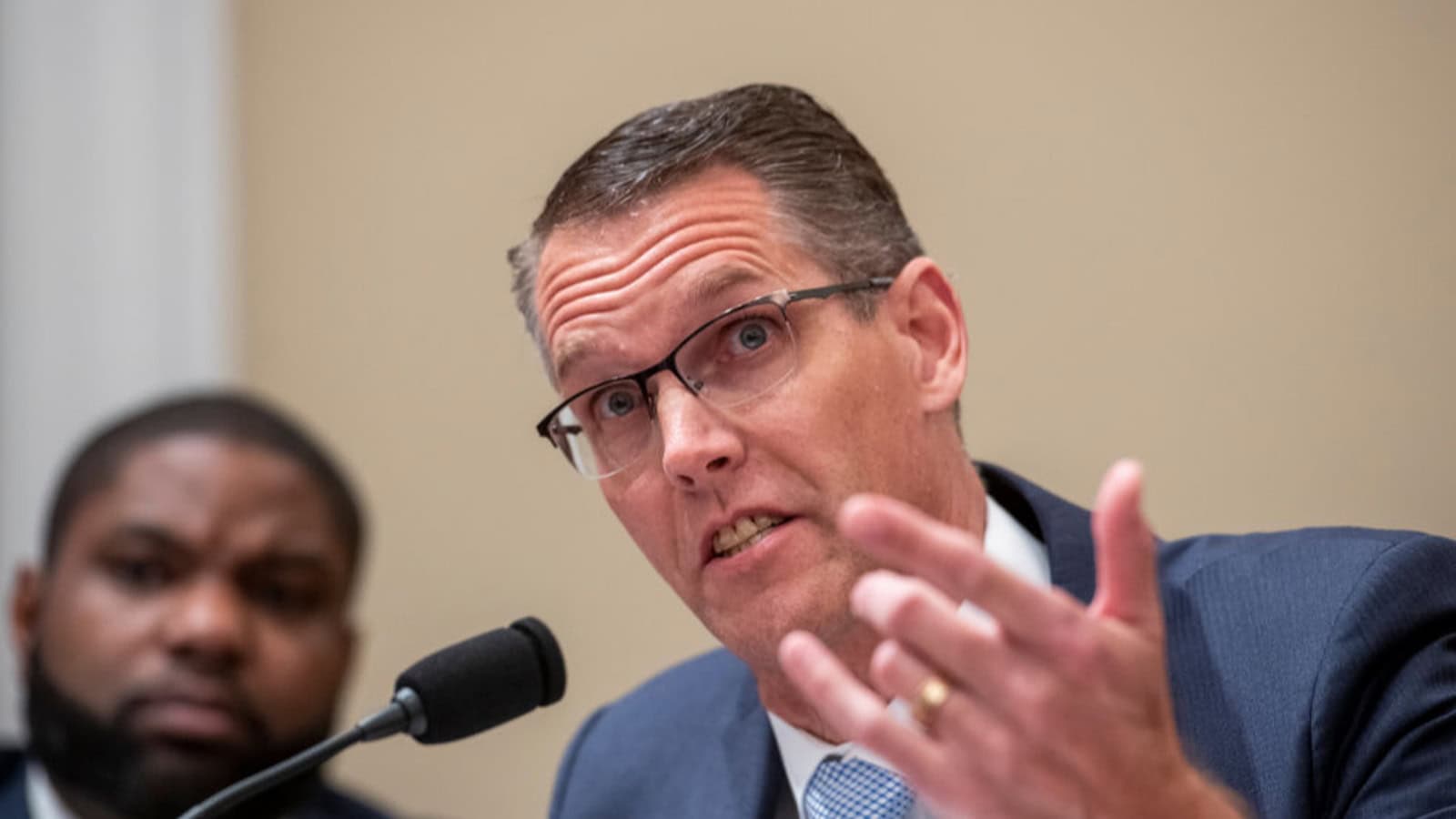
The NAM recently interviewed Rep. Randy Feenstra (R-IA), the vice chair of the House Ways and Means Committee’s Rural America Tax Team, about the estate tax and why he’s working with colleagues on Capitol Hill to repeal it.
NAM: Rep. Feenstra, Congress is facing a “Tax Armageddon” next year, as crucial provisions from 2017’s Tax Cuts and Jobs Act are set to expire. As a member of the Ways and Means Committee, what is your focus moving into next year’s debate?
Rep. Feenstra: One of those crucial provisions from the Tax Cuts and Jobs Act that is set to expire is the doubling of the estate tax exemption amount, which currently sits at $13.6 million in 2024. After 2025, it will return to half that amount, adjusted for inflation. That change in the Tax Cuts and Jobs Act was another important step toward full repeal of the estate tax, which my Death Tax Repeal Act would do. The bill makes the simple recognition that death should not be a taxable event. When a family is grieving, the federal government sends a multimillion-dollar tax bill as condolences. This is simply wrong.
I’m proud to co-chair the Rural America Tax Team, which has dug into this issue of the “death tax” and the impact it is having on family businesses across the country. As the tax team has spoken to family businesses and estate tax experts from across the country, it’s become increasingly clear that we still have a lot of work to do to provide relief from what can be a devastating setback for multigenerational family businesses. Repealing this tax is going to be one of my top priorities in 2025, and I’m proud to have the support of 170 of my colleagues.
NAM: The estate tax is imposed on family-owned businesses when ownership of the business passes to the next generation following the death of an owner. As you mentioned, the TCJA doubled the exemption threshold, excluding more assets from taxation and thus reducing the burden of the estate tax on businesses. Why is this important and what is Congress doing to preserve this higher threshold?
Rep. Feenstra: Over the years, various bills have taken steps toward providing relief for taxpayers hit by the death tax. The Tax Cuts and Jobs Act was one of the largest expansions of that relief, significantly reducing the number of family businesses hit by the tax and reducing the tax burden for those businesses that still are. People often don’t realize that businesses over many generations can accumulate assets that can put them over the asset threshold, but that doesn’t mean these businesses have a lot of cash on hand. So when they’re hit with millions in new taxes, that can sink an already cash-strapped business. Fortunately, because of the doubling of the exemption amount, far fewer businesses face that threat. As long as any family business does face that threat, we still have work to do.
NAM: At the end of 2025, the estate tax is scheduled to be reduced by half, subjecting more of family-owned manufacturers’ assets to taxation and increasing their estate tax liability. As the Ways and Means Committee and tax teams continue meeting with businesses around the country, what are you hearing on the impact this change would have?
Rep. Feenstra: Two things: A lot more people would be hit by the death tax, and the people who are hit would be paying a much higher tax. These are small family businesses we are talking about, and if the current exemption amount is allowed to return to half its current value, that means the size of the businesses getting hit are much smaller than they are today. People often think of farms, and that’s certainly true, but as you know, manufacturers are hit, family-owned restaurants, auto dealers, you name it. As we go into 2025, we need to be focused on policies that support growth and help these businesses succeed, not create costly obstacles for them to overcome. If the exemption amount falls to its pre–Tax Cuts and Jobs Act level, that’s a lot of new businesses that are going to be hit by this tax.
Rep. Garbarino, NAM Talk CIRCIA Flaws
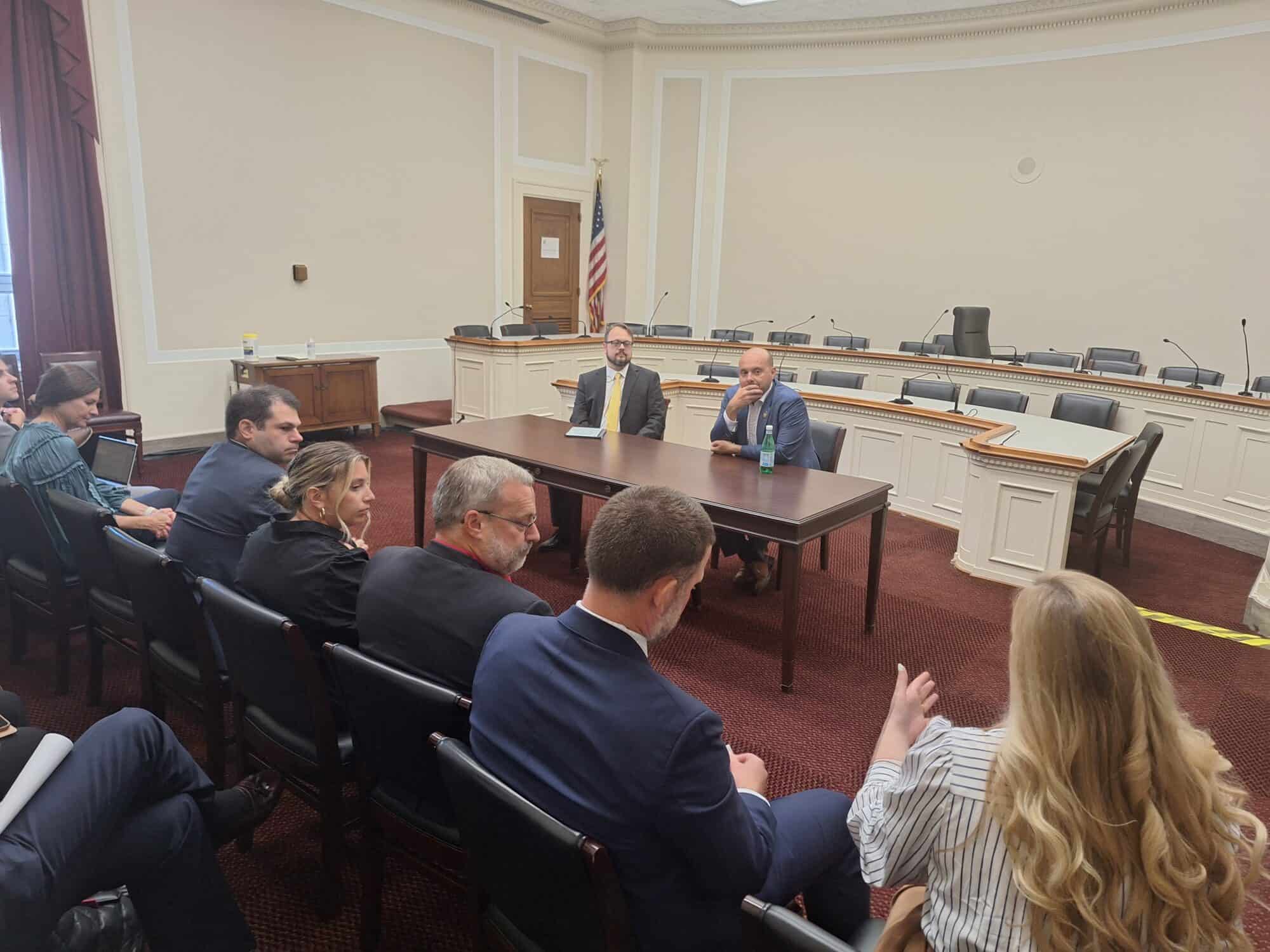
A draft Department of Homeland Security rule requiring that certain sectors expedite cyber-incident reporting has several shortcomings that must be addressed before the rule becomes final in the fall of 2025, the NAM told Rep. Andrew Garbarino (R-NY) in a meeting this week.
What’s going on: Rep. Garbarino, chair of the House Homeland Security Subcommittee on Cybersecurity and Infrastructure Protection, met with manufacturers and the NAM Technology Policy Committee Tuesday to talk cybersecurity issues.
- Much of the discussion focused on draft rulemaking published in April by the DHS’s Cybersecurity and Infrastructure Security Agency. It would require “covered entities” in “critical infrastructure sector[s]” to report any major cybersecurity incidents to CISA within 72 hours.
- Under the Cybersecurity Incident Reporting for Critical Infrastructure Act, CISA must finalize the rule by October 2025.
Why it’s a problem: The NAM agrees with the concerns Rep. Garbarino raised with CISA, including:
- The burden associated with imposing onerous reporting mandates on companies recovering from cyberattacks;
- An overbroad scope, which forces into compliance both organizations that are not truly “critical infrastructure” and those that are too small to have the resources needed to complete the required actions;
- An overbroad definition of incidents requiring reporting;
- An excessive amount of required information;
- An unreasonably high cost of compliance and the diversion of resources away from cyber-incident response; and
- The risk that the proposed rule will jeopardize CISA’s role as a trusted partner of industry.
NAM in action: The NAM submitted comments in response to CISA’s proposal earlier this year outlining these concerns, as well as calling for a reduction in both the number of entities required to file incident notifications and the number of incidents they have to report.
The NAM says: “CISA needs to significantly rethink its approach to CIRCIA’s implementation,” said NAM Senior Director of Technology Policy Franck Journoud.
- “The proposed rule requires far too much information about far too many incidents from far too many companies. CISA should not mandate that companies under attack from hackers divert precious security resources to generate mountains of incident data that CISA will not have the means to process or act upon.”
Take precautions: If you are looking to strengthen your company’s cyber protections, check out NAM Cyber Cover, an affordable, broad security program for NAM members that provides proactive monitoring with automated alerts at no extra cost.
Rep. Chavez-DeRemer Urges Pro-Growth Tax Policy at Miles Fiberglass
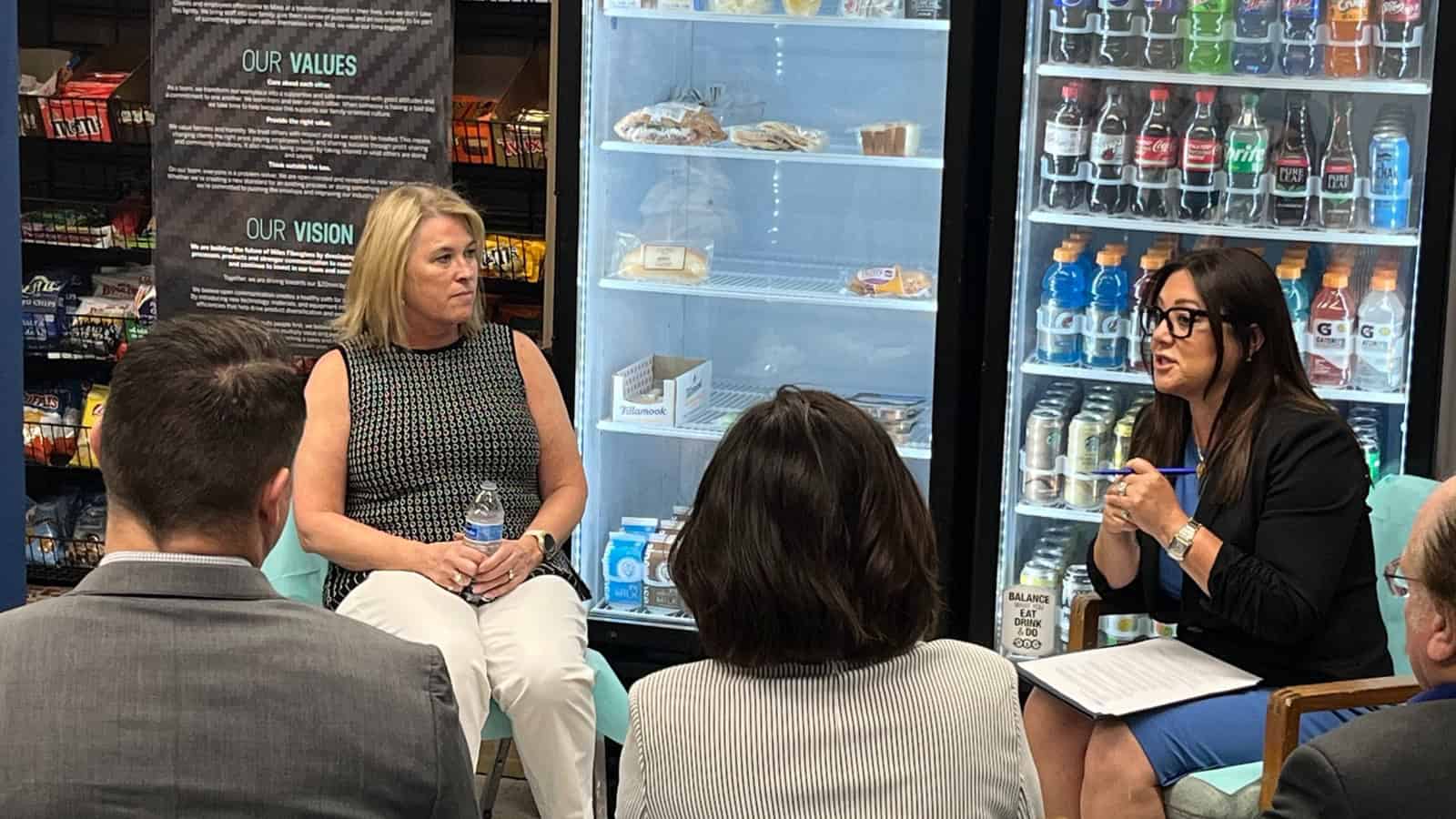
Congresswoman Lori Chavez-DeRemer (R-OR) visited Miles Fiberglass & Composites in Clackamas, Oregon, for a roundtable discussion with local manufacturers and other business leaders on the critical need to protect manufacturing-friendly tax policies. Moderated by Miles Fiberglass President and owner and NAM board member Lori Miles-Olund and attended by representatives of the NAM and Oregon Business & Industry, the discussion centered on the importance of preserving the 2017 Tax Cuts and Jobs Act, which has been a lifeline for small manufacturers.
Stimulating growth: “The 2017 Tax Cuts and Jobs Act freed up capital for us to hire more people, invest in new equipment and increase wages,” said Miles-Olund. “It’s essential for manufacturers like us to have a pro-growth tax code that allows us to stay competitive and innovate.”
- The 2017 reforms lowered the corporate tax rate and provided a 20% pass-through deduction for small businesses, boosting their growth for the past seven years.
- However, with key provisions set to expire in 2025, many manufacturers are concerned about the harm to their businesses if Congress fails to act.
A looming threat: Rep. Chavez-DeRemer addressed the impending expiration of these tax provisions, saying, “We cannot afford to return to a tax system that punishes manufacturers for investing in the U.S.”
- She also highlighted the economic ripple effects of tax hikes, noting that when manufacturers are forced to scale back investments, it affects not just their operations but also their suppliers and communities.
- OBI President and CEO Angela Wilhelms echoed these concerns. “Preserving these tax reforms is essential to ensuring that Oregon businesses remain competitive on a global stage,” she said.
Empowering women: Rep. Chavez-DeRemer also discussed the importance of empowering women in the manufacturing sector. She praised Miles Fiberglass’ efforts to recruit more women, adding that legislation like the National Apprenticeship Act can help open doors for women and close the skills gap in manufacturing.
The last word: “We need policies that allow manufacturers to thrive,” Rep. Chavez-DeRemer said. “Congress must prioritize protecting jobs, ensuring economic stability and keeping American manufacturing competitive.”
If you want to add your voice to the fight for tax reform, or host legislators for a facility visit, check out the NAM’s “Manufacturing Wins” campaign.
Small Manufacturers Speak Out Against the Estate Tax

Passing on the family business can also mean passing on a big tax bill, and family-owned manufacturers are speaking out to keep those bills from getting any bigger.
What’s happening: As part of its “Manufacturing Wins” campaign to preserve 2017 tax reform, the NAM is calling on Congress to secure the law’s changes to the estate tax.
- Tax reform increased the estate tax exemption threshold, which protects some of a family-owned business’s assets from the tax.
- The threshold is set to be slashed in half at the end of 2025, subjecting more of family-owned manufacturers’ assets to taxation and making it harder for them to pass their business on to the next generation.
Protecting physical assets: Manufacturers constantly invest in physical assets like facilities and machinery to stay competitive, making the estate tax especially damaging.
- “We’re not a liquid company,” said Tom Tredway, president of Erie Molded Packaging in Pennsylvania. “Almost every penny we earn is poured back into our business so we can grow and compete. The increased estate tax exemption threshold is set to expire at the end of 2025, which will threaten my ability to pass the business on to my children.”
- “The estate tax doesn’t just hurt family businesses—it hurts the workers,” added Scott Livingston, president and CEO of HORST Engineering in East Hartford, Connecticut. “It also hurts our customers and the communities that we serve.”
Preserving company values: For Click Bond, a family-owned adhesives manufacturer in Carson City, Nevada, paying a higher estate tax bill could mean compromising the business’s vision and values.
- “We may have become a family business by happenstance, but we remain one by strategy,” said CEO Karl Hutter. “With reduced lifetime estate tax exemptions, family businesses will face the threat of having to liquidate, divest or take in outside capital that may not align with their strategy or values simply to create liquidity to pay a tax bill.”
- “The estate tax rips financial resources from productive organizations,” said Dave True of the 76-year-old True Companies in Casper, Wyoming. “These financial resources are critical to small companies and the families they support.”
Saving livelihoods: For some families, the estate tax threatens to turn a death in the family into the death of the business.
- “When I lost my husband to brain cancer, not only did I have to worry about keeping the business afloat, but I also had to worry about a looming tax bill that might have forced us to halt production altogether,” said Courtney Silver, president and owner of Ketchie, Inc. in Concord, North Carolina.
- Silver, who chairs the NAM’s Small and Medium Manufacturers Group, continued: “If not for the federal estate tax exemption being increased in 2017, Ketchie might not be here today.”
The last word: Lori Miles-Olund, the third-generation owner and president of Miles Fiberglass & Composites, Inc. in Clackamas, Oregon, put it simply: “Congress must preserve the increased estate tax exemption to protect family-owned businesses like ours from potential insolvency when the owner passes away.”
Curb Proxy Firms, NAM Tells Congress
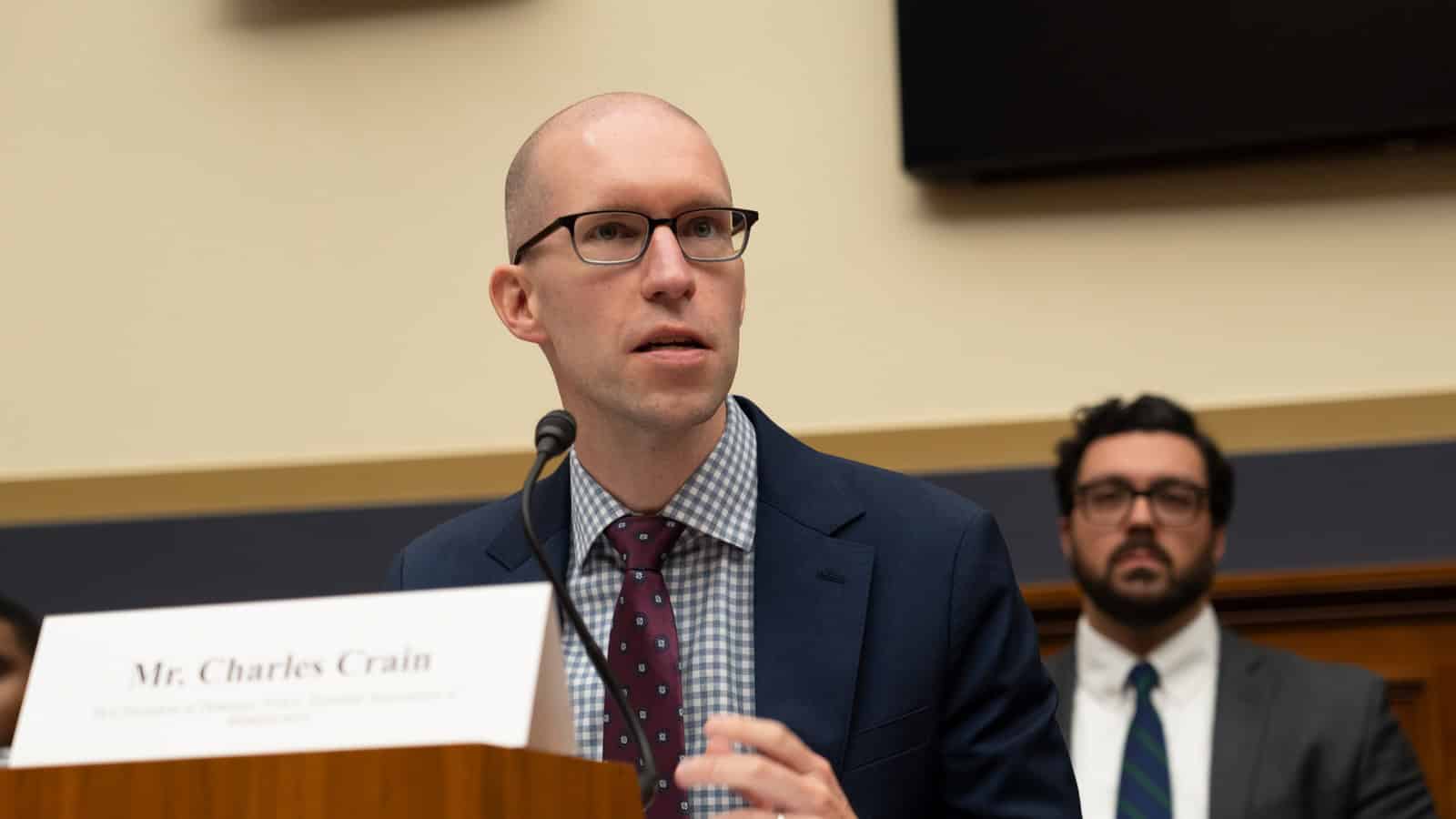
Less than three months after scoring a significant win for manufacturers against Securities and Exchange Commission overreach, the NAM was back in front of Congress to urge regulatory oversight of proxy advisory firms.
What’s going on: On Tuesday, the NAM testified before the House Financial Services Oversight and Investigations Subcommittee on the need to bring oversight and accountability to proxy advisory firms. These are entities that make recommendations regarding the way shareholders should vote on proxy ballot proposals brought before publicly traded companies.
- “Proxy firms are powerful, unaccountable actors that pose a real threat to Americans’ financial security. Manufacturers have been subject to these firms’ outsized influence for far too long,” NAM Vice President of Domestic Policy Charles Crain said during Tuesday’s hearing.
The background: In 2020, the SEC finalized an NAM-supported rule instituting important proxy reforms, such as requiring proxy firms to disclose any conflicts of interest. The NAM has fought in court to preserve the 2020 rule, successfully defeating the SEC’s attempts to suspend the rule and to rescind its most crucial provisions. The NAM is now back in court in a third case, defending the SEC’s authority to regulate these powerful market actors.
Surrendering to ISS: Institutional Shareholder Services Inc., the largest and most influential proxy advisory firm, is now “suing the SEC over its authority to issue the 2020 rule—not just the rule’s particulars, but the SEC’s ability to regulate proxy firms at all,” Crain continued.
- Troublingly, “the SEC is waving the white flag in the face of [the] challenge,” he told lawmakers, referring to the agency’s decision not to appeal after a district court sided with ISS earlier this year.
“Sole defender”: The NAM—now the “sole defender of the 2020 rule”—is appealing the district court’s decision.
What Congress should do: Legislators must take up the mantle, too, Crain concluded.
- “Congress should do what the SEC will not: affirm the SEC’s clear authority, provide much-needed oversight and accountability and help manufacturers and Main Street investors escape the outsized influence of proxy advisory firms.”
